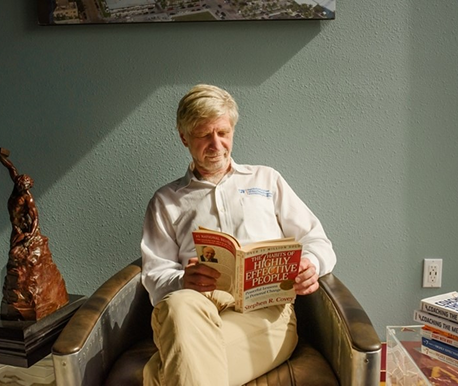 “The main reason we don’t make meetings more productive is that we don’t value our time properly. The people who call meetings and those who attend them are not thinking about time as their most valuable resource.”
“The main reason we don’t make meetings more productive is that we don’t value our time properly. The people who call meetings and those who attend them are not thinking about time as their most valuable resource.”
Seeking to spur productivity, I once told someone in my employ, “The good Lord gave you 24 hours a day, 7 days a week, and He did not charge you for them. I only get 8 hours a day, 5 days a week, and I have to pay for them.” Time is finite and in business, time must be accounted for. Time must produce a return on investment.
Just because someone is not in a meeting does not mean that person is being productive. However, it is likely that if someone IS in a meeting, that person’s productivity is at a lull. I am amazed at how often a person who is on the agenda for one item will stay for the entire meeting as if he had nothing more important on his calendar. And even if some amorphous benefit is derived from his continued presence, was it the highest and best use of his time? The “biggest rock” facing him?
The trouble is that meetings frequently give the illusion of work, the appearance of addressing an issue, without the reality of actually doing anything truly productive, which is the more challenging task. As Henry Ford once said, “Thinking is hard work. That is why so few people do it.”
Most meetings fail the productivity test because
– the need for and the purpose of the meeting are not tightly defined
– relatively little effort is made to winnow out issues pre-meeting via email
– too many meetings are called and too many people attend for too long
– few people have the nerve to cancel a standing meeting if the agenda does not warrant going forward
– no real effort is made to evaluate the effectiveness of a meeting or to hold the person calling the meeting or the participants responsible for concrete results, for a return on the time investment made
On the theory that many meetings serve an unspoken social agenda, I’m very fond of calling meetings during the lunch hour and having food delivered. Others call meetings for 4 p.m. on the theory that it will encourage brevity. Others give each agenda item a time limit and appoint a timekeeper. Another favorite is to adjourn at the appointed time no matter where you are on the agenda, forcing the agenda to be in order of importance. Conducting meetings standing up is another favorite, or to stand at the end of the alloted time (or at the end of the first 45 minutes or hour) is reached.
This blog was inspired by the New York Times article below, from which I cheerfully stole my blog title.
—————-
Meetings Are a Matter of Precious Time
By Reid Hastie
Published: January 17, 2009




